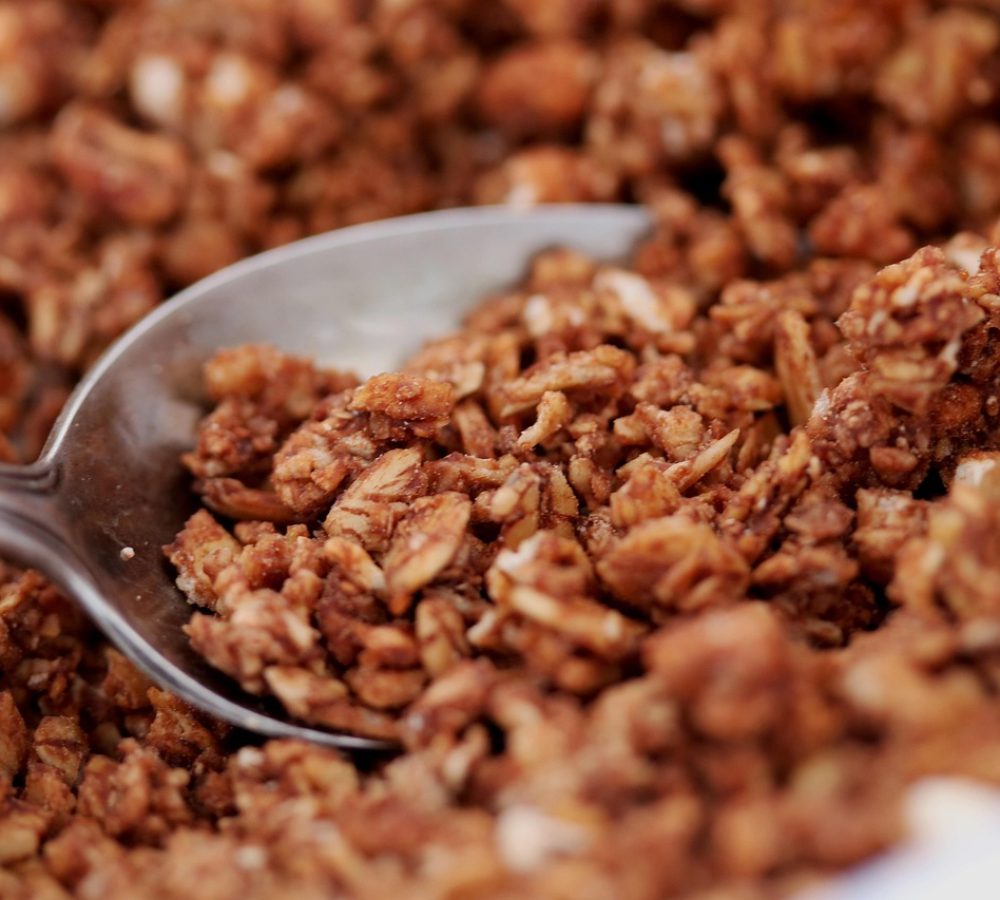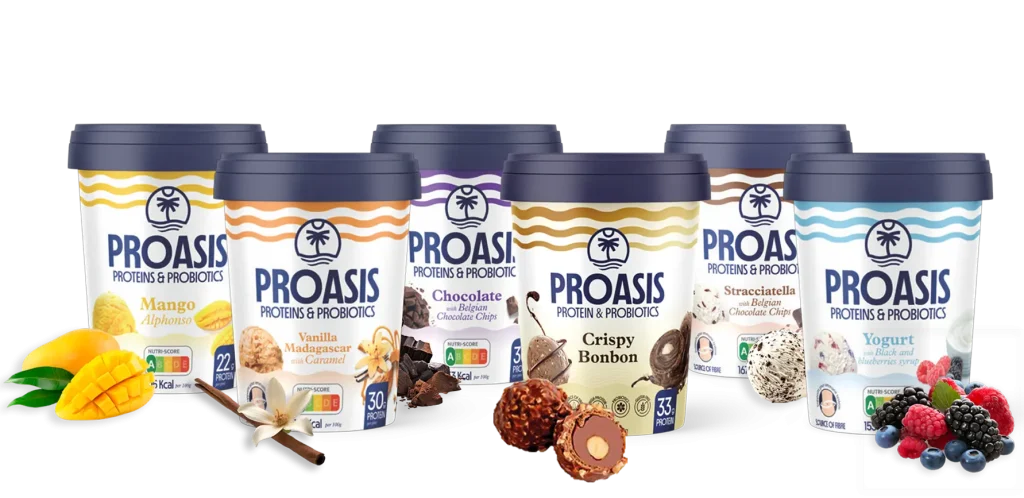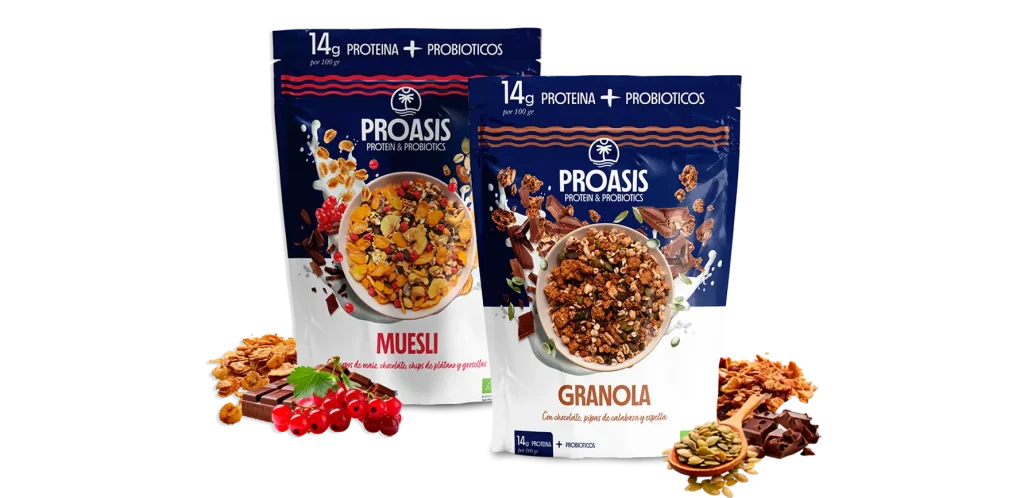Are probiotics recommended for older adults? As we age, vitality and well-being play a key role. Without a doubt, probiotics and proper nutrition are crucial for promoting health in later life.
That’s why understanding the beneficial effects of probiotic microorganisms on seniors’ health, as well as the value of proteins in their diet, is very important. In this article, we explore how probiotics affect the senior population and provide useful recommendations to support vitality and well-being in older individuals.
The importance of probiotics for older adults
Healthy aging is a goal we all share. In this process, certain beneficial microorganisms, such as probiotics, are essential for maintaining desired well-being and vitality. These microorganisms help improve gut flora, strengthen the immune system, and support better absorption of essential nutrients.
In addition, they help reduce inflammation and optimize cognitive function in this age group. Therefore, incorporating probiotic-rich foods — like yogurt and kefir — or products enriched with them — such as Proasis ice creams and their probiotic cereals — enhances digestive health and helps prevent common age-related issues, especially constipation and diarrhea.
Do you have older adults in your life? Apply this change to their daily diet — it leads to clear improvements in well-being and vitality in later life.
Positive effects of probiotics on seniors’ health
The benefits that these foods bring to older adults are numerous. Below are the most notable ones:
- They help balance the gut microbiota.
- They strengthen the immune system.
- They improve digestion.
- They reduce inflammation.
- They enhance the absorption of essential nutrients.
- They have positive effects on mental health in the elderly, as they influence the gut-brain axis and help reduce the risk of depression or anxiety.
In short, incorporating probiotic-rich foods or specific supplements into the daily diet of older adults is an effective strategy to promote their overall well-being and maintain optimal gut microbiota balance.
The value of protein for older adults
That said, probiotics are not the only dietary addition worth highlighting. As people age, the importance of protein becomes fundamental for their health and vitality. Proteins are essential for preserving muscle mass, strength, and immune function in seniors.
By including high-quality sources of these nutrients in their diets — lean meats, fish, eggs, low-fat dairy products, legumes, and nuts — older adults promote tissue repair, improve bone density, and support active and healthy aging.
Additionally, protein helps maintain satiety and prevent unwanted weight loss, which is often associated with aging. It’s important for seniors to consume adequate amounts to ensure a good quality of life in this stage. In old age, well-being through protein is highly achievable.
Recommendations to boost energy and well-being during aging
To enhance vitality and well-being during the aging process, it’s essential to maintain a balanced diet rich in essential nutrients. Take note of these dietary recommendations for older adults:
- Consuming foods rich in protein for older adults, such as legumes, eggs, and dairy, helps preserve muscle mass and promotes bone health.
- Including probiotics in the diet supports gut health and strengthens the immune system. Proasis products such as the Belgian chocolate chip ice cream or the Madagascar vanilla with caramel ice cream help satisfy sweet and refreshing cravings in a healthier way.
- Staying hydrated.
- Engaging in regular physical activity adapted to each individual’s capacity.
- Ensuring proper rest.
These might seem like simple suggestions, but they are just as effective — often making a significant difference in the quality of life of older adults.
What are the best probiotics for the senior population?
When choosing the most suitable probiotics for older individuals, it’s important to select strains that provide specific health benefits. Specifically, these three:
- Lactobacillus acidophilus
- Bifidobacterium lactis
- Lactobacillus rhamnosus
All three help strengthen the immune system, improve digestion, and enhance nutrient absorption, while reducing the intestinal inflammation commonly experienced in this stage of life. Furthermore, combining them is especially beneficial to balance the gut microbiota in elderly individuals.
In any case, it is advisable to consult a healthcare professional before beginning any probiotic supplement. This ensures you choose the most suitable option based on each senior’s individual needs. Healthy aging and frailty prevention are strengthened by the intake of the right enriched foods.
Undoubtedly, during the golden years of life, vitality and well-being are enhanced by increasing the intake of protein and probiotics for seniors. Their health benefits are significant — they noticeably improve energy and raise the quality of life during aging. Thanks to Proasis, you can rely on highly recommended granola and muesli cereals. Give them a try!
Research Sources
- https://www.proasis.com/
- https://www.39ytu.com/ucam-capsa/probioticos-envejecimiento
- https://www.elprobiotico.com/guia-de-buena-practica-en-geriatria-microbiota-probioticos/
Image
- Source: Image by Alicia Harper from Pixabay








